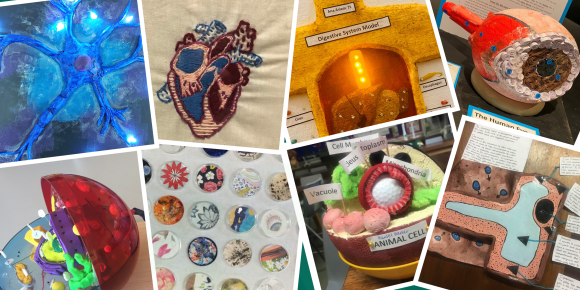BioCraft Competition
The BioCraft Competition (previously BioArtAttack 3D) is now closed for entries. Participants created a biology-inspired 3D artwork from recycled, or other, materials.
The competition is open to anyone in the UK and outside the UK. Entries are free of charge and the competition is open to all ages.
The public poll to decide the competition winners has now closed. The winners were announced via a news story.
Submissions were entered in two categories:
- Single submissions: one piece of 3D artwork, created by either a person or a group of people
- Multiple submissions: for multiple pieces of 3D artwork, suitable for teachers, youth group leaders or anyone who has a large selection of artworks to submit from one large group of people.
Anyone of any age in the UK and the rest of the world may enter this competition.
The terms and conditions of the 2024 BioCraft Competition are available online.
Choosing our BioCraft winners
A judging panel of RSB staff decided a shortlist for both the individual and group entry category. The winners and runners up were then decided by a public vote.
The BioCraft Competition winners in each category will receive a prize for their creation.
Entries were judged on:
- the variety of materials used
- the variety of creative skills used
- the aesthetic quality of the piece
- the originality of the piece
- how well the piece captures the biological basis of the subject matter
Inspiration
From the very big to the very small: BioCraft entries can take inspiration from the smallest parts of the natural world that only a microscope can see: think cell structures, bacterial colonies and microscopic organisms.
Entries could instead feature environments or ecosystems. Art could be based around great savannahs, wide-open plains, the deep oceans or immense rainforests and the huge range of diversity contained within them.
Hands-on science: Lab or field equipment could be the focus of your artwork, with fascinating tools and apparatus being used by scientists to provide ways to make wonderful discoveries.
Scientific concepts: Your art could help explain a biological concept, theory or area of biology that particularly interests you.
Art can be a great way to visualise something that may seem complex or difficult to understand.
Contact
Please email if you have any queries about the competition.


